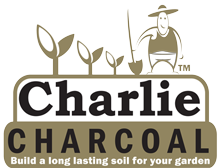| item(s), Total: $0.00 View Cart |
| Shopping cart is empty. |
Winter Gardening Guide for Perth

Winter is a great time to plant and garden in Perth & the South West of WA.
If you’re keen to build up your inner green thumb but don't know where to start - we've got some helpful ideas for your Winter Perth Garden.
1. Check on current plants. If you got stuck into your garden in Autumn, things should be growing well now. Keep an eye on general plant health and growing conditions and act quickly if you think there are issues. If plants aren't thriving, are looking sick, or are being hammered by pests and you're over trying to do battle with them - perhaps rip out what's not doing well and start again! The right plant should thrive in the right spot and under the right conditions. Check out our 'When to Sow Vegetables in Perth' Guide to make sure you're growing at the right time of year in the first place! We all make mistakes in gardening - diaries come in handy to keep notes on what worked (and what didn't) - and experience only comes with having a go; so don't be disheartened.
2. Make sure plants are getting adequate airflow. If you've accidentally planted things too close together, then sacrificing smaller/weaker plants now will mean the remaining plants have more space to thrive, and you'll often get better crops from those remaining plants. I know it feels tough - depending on what the plant is, you may still be able to use it! Brassicas (Cauli/Broc/Cabbage) & Onions are edible in their entirety - add leaves & stalks to soups and stews and you're still getting the benefit of your home grown vegies! (Don't try this with the solanum family - tomatoes and potatoes - their foliage is poisonous.) Ensure you keep weeds under control - they will inhibit airflow and sunlight, and many plants don't like root competition from weeds - you'll get smaller crops as weeds rob your vegies of valuable soil nutrients. See our fact sheet on organic weed control here.
3. Make sure plants are getting adequate sunlight. This can be tricky, and it takes a bit of experience with your garden to understand the differences in the seasons. Generally fruiting vegetables need more sunlight than leavy vegies; and it can be difficult in our backyards to control the amount of light when there are existing sheds, fences, buildings and trees (prune trees & shrubs if you can.) But there are some tricks that might help. It may sound strange, but strategically placed mirrors can work wonders to reflect light into darker corners and other areas of your garden. Op shops may provide low cost options (wardrobe doors, etc). Check on them over a day and see how you need to arrange, move & position them for maximum effect. White surfaces (like white boards/coreflute advertising cards) can also help to reflect light to an extent. If you're planning a new garden, here's some points to consider in our fact sheet before you start.
4. Light liquid feed. Most vegetable crops do well with a light liquid feed every few weeks. You can use things like kelp, fish, worm wiz - and even make your own manure teas. Check out our fact sheet here! Ideally, rotate using different fertilisers - they all will have slightly different nutrients and minerals to provide. The advantage of using liquids is that they're "fast food" for plants - meaning that they can be quickly taken up. Best to use when there's no rain forecast for a few days - as otherwise the nutrients will be flushed through the the soil before they can be utilised. Don't overdo your feeding. Half strength or quarter strength is better if you're planning on weekly or fortnightly doses. Too much nitrogen will lead to sappy leaf growth over flower production - and make the plants more susceptible to pest attack.
5. Succession plant. Either pop some seeds into seed raising mix (or sow direct - if that's more suited to the crop. Check out our guide to growing from seed here.) Remember that depending on what you're growing, you may need 3-4 months until harvest time... So keep that in mind when planning what you can plant where. Things planted later in winter will keep going through Spring until the weather starts to get too warm. If you don't think you've got time to wait for seeds, look for healthy seedlings as an alternative. They'll be quicker to produce. As a tip - dwarf growing varieties will tend to produce sooner; they don't have to grow so large in order to reach fruiting maturity.
6. Get ready to plant! If you're about to plant out succession crops - get the soil ready. If you did a fair bit of soil prep in Autumn, there's no need to over do it for popping in succession crops. Use a handful or two of good quality compost (or our vegetable concentrate), and/or worm castings mixed into the planting area and pop in your new seedlings. If you're only now ripping out late cropping summer plants to make way for Winter crops - you may need to prep your soil a little more diligently to replenish nutrients, but be careful not to disturb roots of neighboring crops. Remember to protect new seedlings - make simple collars out of old plant pots or recycled plastic bottles & pop them over seedlings until they get established. Here's our guide to soil fertility (and how to improve it) here.
7. Monitor for pests and diseases. Giving your plants the best start will ensure healthy growth. Keep an eye on them as they grow and if there's signs of any pests or disease, investigate further and decide if it's something that needs treating - sometimes, issues are seasonal. If you're wanting to reduce the use of chemicals in your garden, acting early and being aware of your options is important. Winter pests are mostly slugs, snails, slaters and aphids - and there are low toxic ways to deal with them. Use beer traps for snails/slaters - or some of the other ideas we have for you in our Winter Pest fact sheet. Cabbage butterfly tend to appear more in the warmer weather - so if these are a problem for you, you may want to look into netting susceptible vegetables before Spring.
Ask at your local nursery (or come and visit us) if you need help - we're Perth's Organic gardening specialists, and we'd love to make sure you're having success in your Winter garden. Whether you're growing veggies, herbs or ornamental plants this Winter in Perth - we can help. We have HEAPS of free fact sheets available - browse them here.
Want to know what to plant NOW in Perth? Sign up for our free downloadable chart - we've got one for 'What to Plant Now' for Vegies & one for herbs.
Download our FREE 'Top 12 Edible Plants for Autumn/Winter' - become a VIP member & sign up now for access and to receive our monthly newsletter with more seasonal growing advice for Perth!
Get Growing Today!
Come on in!
Pick up bags or bulk product bring your trailer (or use one of ours) Opening hours: 8.30 - 4.00 Monday - Saturday (closed Sunday)
Shop Online - We Deliver
24/7 convenient & secure online shopping or support your local independent retail outlet
Get Growing
We guarantee our products. Ask our friendly staff for help & advice ~ we're here to help you achieve the garden of your dreams.
























